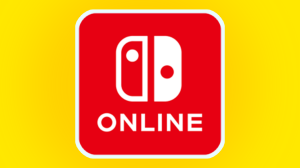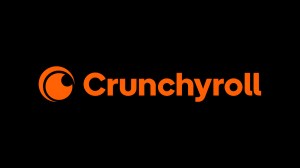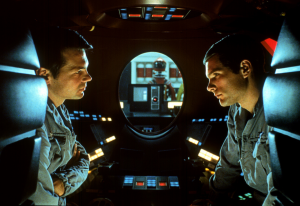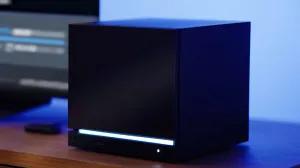Publisher Electronic Arts and developer Velan Studios today revealed Knockout City, a new team-based multiplayer video game that is, as the press release states, more about “dodgeBRAWL” than it is about dodgeball. The title is set to release May 21st for PC via Origin and Steam, PlayStation 4, Xbox One, and Nintendo Switch — and will also be playable on PlayStation 5 and Xbox Series X|S via backward compatibility. But perhaps best of all? It supports both cross-play and cross-progression.
Videos by ComicBook.com
The title is essentially a stylish take on souped-up organized dodgeball. Rather than have individual characters with various abilities, it’s all about how to use a combination of moving (or gliding) around the map while faking out opponents with slick maneuvers in order to, well, hit them with your dodgeball. Rather than comparing it to a shooter, for example, the developers instead likened it to fighting video games with trades back and forth all about timing thanks to the fact that there are multiple mechanics built around dealing with oncoming balls — including a core conceit of simply being able to catch them when timed right.

That said, given the importance of timing, you might be wondering how the video game deals with latency and netcode considering all of that. According to Velan Studios’ co-founder Karthik Bala, the developer ended up making its own engine — Viper — and programming language in order to make sure things went smoothly.
“We took inspiration from other games like fighting games that do rollback for example,” Bala said when asked about the game’s netcode, “but the problem quickly became a lot more complex, because we have any number of dodgeballs that are moving at very high speed. The player becomes a physics object at any time, and we have arbitrary level design and geometry, cars that get in the way… And it becomes a really complicated set of problems that’s difficult to manage. And we wanted it to be scalable as well across platforms from the Switch all the way to high-end PCs and consoles.”

“And so that kind of scalability, dealing with the latency, that you can have ping times at a 100, 150 milliseconds, and how do you keep that fair and consistent? It’s a really hard problem to solve,” Bala added. “And that’s where we had to develop this new language that allows us to essentially roll back the entire simulation and then being able to fix any issues with packet loss or prediction, and then roll it forward again to be able to catch up and keep everybody synchronized regardless of what platform they’re on. It was the fundamental nut to crack, but as we worked through that and — really in service of the play field, because for us as game designers, it’s really about that player experience and getting it to feel right.”
ComicBook.com recently had the opportunity to check out Knockout City on PC as part of a virtual event focused on three different Street Play modes: Team KO (3v3), Diamond Dash, and Ball-Up Brawl. While this obviously wasn’t directly comparable to the actual launch where potentially thousands of players would be attempting to play at the same time, across different modes like the ranked League Play or in private matches, our experience was relatively smooth with few if any connection problems.

Of the three modes, Team KO was the most straightforward, which should be fairly obvious given the name. While the matches regularly devolved into trying to shove other players off the map — falling is a real bummer of a way to lose a match — more than once it allowed for flashy play where my customized character managed to knock two or more of the opposing team on their keisters thanks to spinning, jumping, and smart catches that sped up the ball with each subsequent catch.
Diamond Dash essentially takes the team dynamic and makes it a race for resources instead of eliminations as knockouts generate diamonds you can then collect. You can also collect your own team’s diamonds, which won’t increase your total but will prevent the opposing team from doing so. In general, this was my least favorite of the modes as the large maps made for lots of running around with little to do until the entire enemy team would descend on you.

On the other hand, Ball-Up Brawl was far and away my favorite mode. Essentially, it’s Team KO all over again with the catch being: there are no balls on the map. Instead, players have to throw their own teammates thanks to the fact that the game includes the ability to ball yourself up to function as a ball. But you need to watch out as enemy players can also pick you up and throw you if you don’t break out of their grasp in time.
But you don’t just have to take my word for it as a Closed Beta on PC is set to kick off this Saturday, February 20th. It’s also worth noting that even though Knockout City will cost $19.99, there will also be a free trial for a limited time at launch across all its available platforms with full access to the game, and if folks pick it up during the free trial, all of the progress transfers.

As noted above, Knockout City is scheduled to release for PC via Origin or Steam, PS4, Xbox One, and Nintendo Switch on May 21st for $19.99. It will also be playable on PS5 and Xbox Series X|S via backward compatibility. Much like other multiplayer titles, it will feature seasons and purchasable cosmetics, though there will be no loot boxes or similar mechanics.
What do you think of what’s been revealed of Knockout City so far? Are you excited to check it out when it launches later this year? Let us know in the comments, or feel free to reach out and hit me up directly over on Twitter at @rollinbishop to talk about all things gaming!








